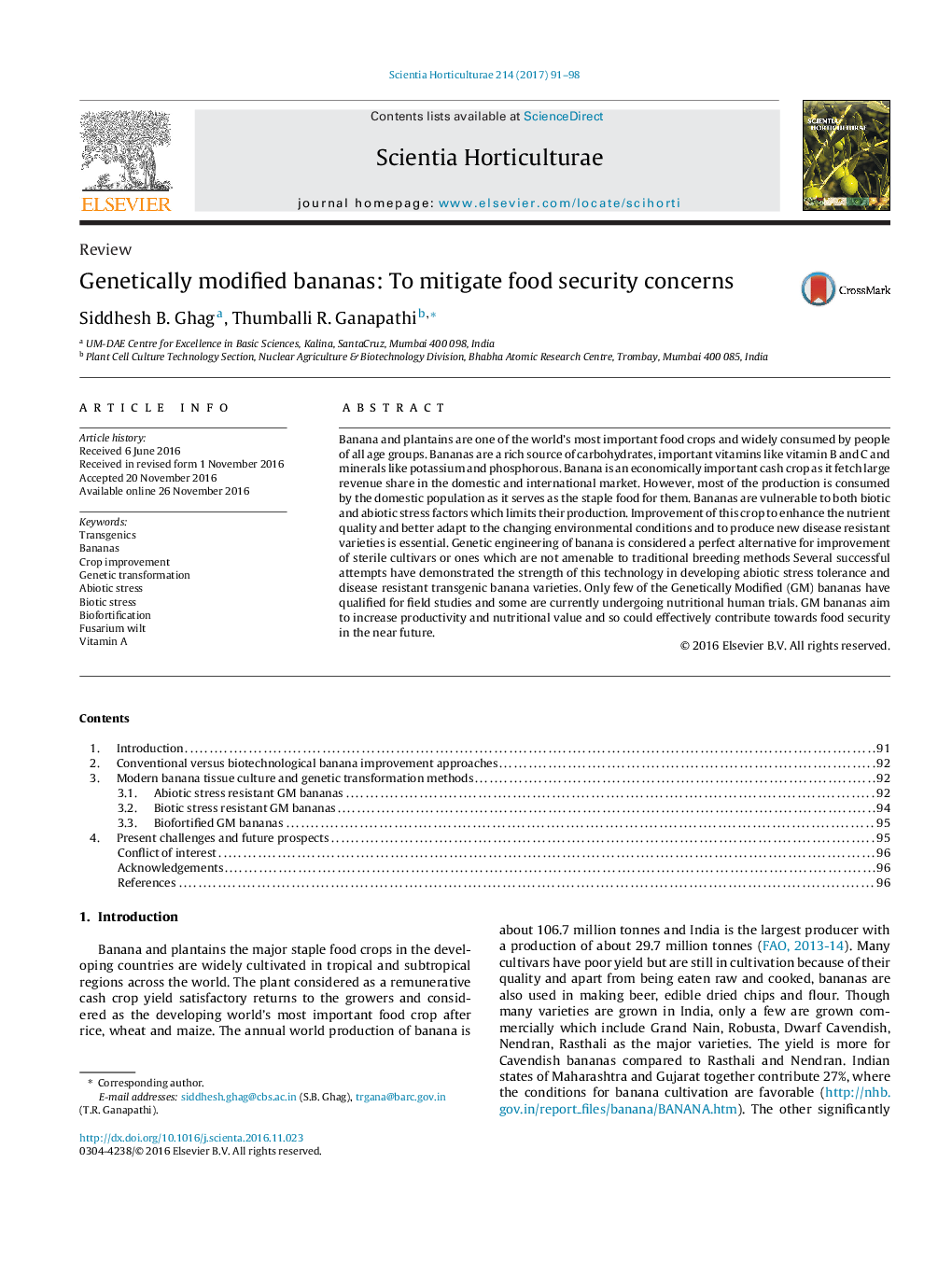| Article ID | Journal | Published Year | Pages | File Type |
|---|---|---|---|---|
| 5769797 | Scientia Horticulturae | 2017 | 8 Pages |
â¢Banana and plantains are one of the world's most important food crops.â¢Production is marred due to biotic and abiotic stress factors.â¢Genetic engineering of banana ensures increase productivity and nutritional value thereby contributing towards food security and sustainability.
Banana and plantains are one of the world's most important food crops and widely consumed by people of all age groups. Bananas are a rich source of carbohydrates, important vitamins like vitamin B and C and minerals like potassium and phosphorous. Banana is an economically important cash crop as it fetch large revenue share in the domestic and international market. However, most of the production is consumed by the domestic population as it serves as the staple food for them. Bananas are vulnerable to both biotic and abiotic stress factors which limits their production. Improvement of this crop to enhance the nutrient quality and better adapt to the changing environmental conditions and to produce new disease resistant varieties is essential. Genetic engineering of banana is considered a perfect alternative for improvement of sterile cultivars or ones which are not amenable to traditional breeding methods Several successful attempts have demonstrated the strength of this technology in developing abiotic stress tolerance and disease resistant transgenic banana varieties. Only few of the Genetically Modified (GM) bananas have qualified for field studies and some are currently undergoing nutritional human trials. GM bananas aim to increase productivity and nutritional value and so could effectively contribute towards food security in the near future.
